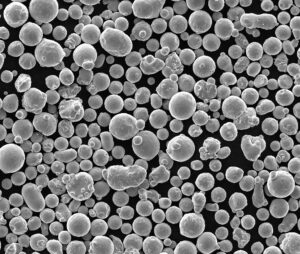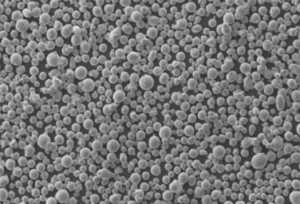Vue d'ensemble Grade de forgeage Matériau
Les matériaux de qualité forgée sont l'épine dorsale des industries où la durabilité, la résistance et la précision sont primordiales. Ces matériaux, conçus pour résister à des pressions intenses et à des températures élevées, sont essentiels à la fabrication de composants qui doivent conserver leur intégrité sous contrainte, comme les pièces automobiles, les composants aérospatiaux et les machines lourdes. Le forgeage consiste à façonner le métal par des forces de compression, souvent par martelage ou par pressage. Il est donc essentiel de sélectionner le bon matériau pour garantir la résistance et les performances du produit final.
La sélection des matériaux de qualité pour le forgeage implique de tenir compte de leur composition, de leurs propriétés mécaniques et des exigences spécifiques de l'application. Grâce aux progrès de la métallurgie, de nombreuses poudres métalliques sont désormais disponibles pour le forgeage, chacune ayant des propriétés uniques adaptées aux différents besoins de l'industrie.

Types de matériaux de qualité pour le forgeage
Les matériaux de qualité pour le forgeage sont classés en fonction de leur composition et de leurs propriétés. Les matériaux les plus couramment utilisés sont les aciers au carbone, les aciers alliés, les aciers inoxydables, les alliages de titane et les alliages d'aluminium. Chacune de ces catégories possède des qualités spécifiques qui offrent des caractéristiques distinctes, telles que la dureté, la ténacité et la résistance à l'usure et à la corrosion.
| Type de matériau | Notes communes | Composition | Propriétés principales | Applications |
|---|---|---|---|---|
| Acier au carbone | AISI 1045, AISI 1060 | Fer, carbone, manganèse | Haute résistance, ténacité moyenne, bonne usinabilité | Pièces automobiles, boulons, écrous, engrenages |
| Acier allié | AISI 4140, AISI 4340 | Fer, carbone, chrome, molybdène | Haute résistance, excellente trempabilité, résistance à l'usure | Vilebrequins, engrenages, essieux |
| acier inoxydable | 304L, 316L | Fer, chrome, nickel, molybdène | Résistance à la corrosion, bonne ductilité, haute résistance | Dispositifs médicaux, équipements de transformation des aliments |
| Alliages de titane | Ti-6Al-4V, Ti-10V-2Fe-3Al | Titane, aluminium, vanadium | Rapport résistance/poids élevé, résistance à la corrosion | Composants aérospatiaux, implants médicaux |
| Alliages d'aluminium | 2024, 6061 | Aluminium, cuivre, magnésium, silicium | Léger, bonne résistance à la corrosion, grande solidité | Structures d'aéronefs, équipements marins |
Composition du matériau de qualité pour le forgeage
La composition des matériaux de forgeage varie considérablement en fonction du type de métal et des propriétés souhaitées pour le produit final. Vous trouverez ci-dessous une ventilation détaillée de la composition de certains des matériaux de forgeage les plus couramment utilisés.
| Matériau | Éléments principaux | Éléments supplémentaires | Détails de la composition |
|---|---|---|---|
| Acier au carbone (AISI 1045) | Fer (98,51-98,98%), Carbone (0,42-0,50%) | Manganèse (0,60-0,90%), Phosphore, Soufre | Offre un bon équilibre entre la résistance, la ténacité et l'usinabilité. |
| Acier allié (AISI 4140) | Fer (96,79-97,95%), Carbone (0,38-0,43%) | Chrome (0,80-1,10 %), molybdène (0,15-0,25 %) | Connu pour sa haute trempabilité et sa résistance. |
| Acier inoxydable (304L) | Fer (66,0-70,0%), Chrome (18,0-20,0%) | Nickel (8,0-12,0%), molybdène (<0,75%) | Offre une excellente résistance à la corrosion et une bonne ductilité. |
| Alliage de titane (Ti-6Al-4V) | Titane (88.0-90.0%), Aluminium (5.5-6.75%) | Vanadium (3,5-4,5%) | Très durable avec un rapport résistance/poids élevé, il est largement utilisé dans les applications aérospatiales. |
| Alliage d'aluminium (2024) | Aluminium (90,7-94,7%), Cuivre (3,8-4,9%) | Manganèse (0,3-0,9%), Magnésium (1,2-1,8%) | Léger et facile à usiner, il est couramment utilisé dans les structures aérospatiales. |
Caractéristiques des Grade de forgeage Matériau
Les caractéristiques des matériaux de qualité pour le forgeage dépendent fortement de leur composition et de leur traitement. Parmi les caractéristiques communes, on peut citer
- La force: Les matériaux de qualité forgée sont généralement très résistants, ce qui les rend idéaux pour les applications nécessitant une grande intégrité structurelle.
- Solidité: Ces matériaux peuvent absorber une énergie importante avant de se fracturer, ce qui est crucial pour les composants soumis à des chocs importants.
- Ductilité: De nombreux matériaux de qualité pour le forgeage sont ductiles, c'est-à-dire qu'ils peuvent être déformés sans se rompre, ce qui est important pendant le processus de forgeage.
- Résistance à la corrosion: La résistance à la corrosion est une caractéristique essentielle des aciers inoxydables et de certains alliages de titane, en particulier dans les environnements difficiles.
- Résistance à l'usure: Certains aciers alliés sont conçus pour être très résistants à l'usure, ce qui prolonge la durée de vie de pièces telles que les engrenages et les roulements.
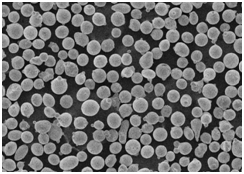
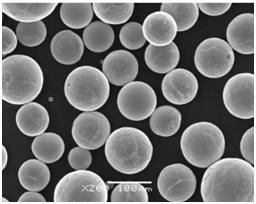
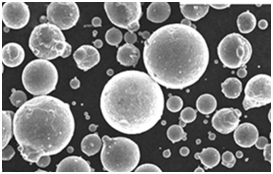
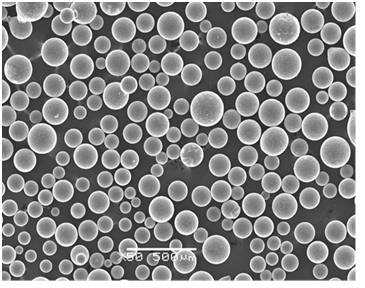

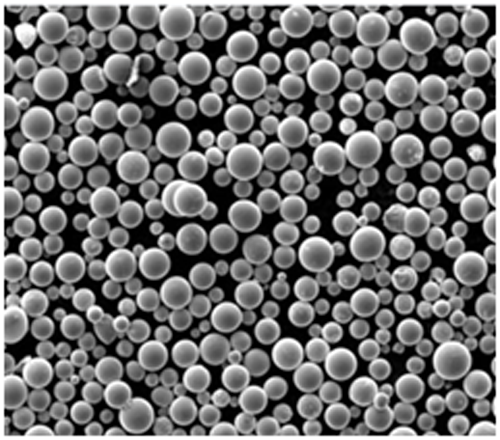
Modèles de poudres métalliques spécifiques pour le forgeage
Lorsqu'il s'agit de forger, le choix de la poudre métallique est crucial. Voici dix modèles de poudres métalliques spécifiques qui sont largement utilisés dans l'industrie :
- Poudre d'acier AISI 1045
- Description: Acier à teneur moyenne en carbone offrant une bonne usinabilité et une bonne soudabilité. Il est largement utilisé pour les pièces qui requièrent de la solidité et de la résistance à l'usure.
- Applications: Idéal pour les composants automobiles, les pièces de machines et les engrenages.
- Poudre d'acier AISI 1060
- Description: Un acier à haute teneur en carbone connu pour sa dureté et sa capacité à conserver un bord tranchant. Il est souvent utilisé dans des applications nécessitant une combinaison de résistance et de ténacité.
- Applications: Utilisé pour la fabrication de couteaux, de lames et d'outils à haute résistance.
- Poudre d'acier allié AISI 4140
- Description: Acier allié au chrome et au molybdène connu pour son excellente trempabilité et sa résistance. Il est couramment utilisé dans les environnements soumis à de fortes contraintes.
- Applications: Idéal pour les vilebrequins, les engrenages et les essieux à usage intensif.
- Poudre d'acier allié AISI 4340
- Description: Un acier allié au nickel-chrome-molybdène qui offre un bon équilibre entre la solidité, la ténacité et la résistance à l'usure.
- Applications: Couramment utilisé dans les composants aérospatiaux et les pièces de machines lourdes.
- acier inoxydable 304L Poudre
- Description: Acier inoxydable austénitique à faible teneur en carbone, offrant une excellente résistance à la corrosion et une bonne soudabilité.
- Applications: Utilisé dans les appareils médicaux, les équipements de transformation des aliments et les applications marines.
- Acier inoxydable 316L Poudre
- Description: Connu pour sa résistance supérieure à la corrosion, en particulier contre les chlorures, ce qui le rend adapté aux environnements marins et chimiques.
- Applications: Utilisé dans les usines chimiques, les équipements marins et les implants chirurgicaux.
- Poudre d'alliage de titane Ti-6Al-4V
- Description: Alliage de titane largement utilisé, connu pour sa grande solidité, son faible poids et son excellente résistance à la corrosion.
- Applications: Largement utilisé dans les composants aérospatiaux, les implants médicaux et les pièces automobiles de haute performance.
- Poudre d'alliage de titane Ti-10V-2Fe-3Al
- Description: Offre une combinaison unique de résistance, de ténacité et d'usinabilité élevées, ce qui le rend idéal pour les applications de forgeage complexes.
- Applications: Utilisé dans les composants aérospatiaux et les applications structurelles où la réduction du poids est essentielle.
- poudre d'alliage d'aluminium 2024
- Description: Connu pour son rapport résistance/poids élevé, cet alliage d'aluminium est un favori de l'industrie aérospatiale.
- Applications: Utilisé dans les structures d'avions, les pièces automobiles et les équipements sportifs de haute performance.
- poudre d'alliage d'aluminium 6061
- Description: Alliage d'aluminium polyvalent connu pour ses bonnes propriétés mécaniques et sa résistance à la corrosion.
- Applications: Couramment utilisé dans les applications structurelles, les équipements marins et les pièces automobiles.
Applications des matériaux de qualité pour le forgeage
Les matériaux de qualité forgée sont utilisés dans un grand nombre d'industries en raison de leurs propriétés mécaniques supérieures. Le tableau ci-dessous présente quelques-unes des principales applications de ces matériaux.
| L'industrie | Applications | Matériaux préférés |
|---|---|---|
| Automobile | Composants de moteurs, engrenages, vilebrequins | Acier allié AISI 4140, 4340, alliage d'aluminium 6061 |
| Aérospatiale | Trains d'atterrissage, pales de turbines, pièces structurelles | Ti-6Al-4V, Ti-10V-2Fe-3Al, alliage d'aluminium 2024 |
| Médical | Instruments chirurgicaux, implants | acier inoxydable 304L, Ti-6Al-4V |
| Pétrole et gaz | Vannes, brides, raccords | acier inoxydable 316L, acier allié AISI 4340 |
| La construction | Poutres structurelles, fixations | Acier AISI 1045, alliage d'aluminium 6061 |
Spécifications, tailles, qualités et normes
Dans le domaine du forgeage, les exigences spécifiques concernant les propriétés des matériaux, les dimensions et les normes peuvent varier considérablement en fonction de l'application. Voici un aperçu complet des spécifications, des dimensions et des qualités des différents matériaux de forgeage, ainsi que des normes industrielles pertinentes.
Spécifications des matériaux de forgeage
Les spécifications des matériaux de forgeage sont définies par plusieurs attributs clés, notamment les propriétés mécaniques, les dimensions et la conformité aux normes industrielles.
| Type de matériau | Standard | Propriétés mécaniques | Tailles typiques | Notes |
|---|---|---|---|---|
| Acier au carbone | ASTM A105 | Limite d'élasticité : 250 MPa, Résistance à la traction : 450 MPa | Barres : 10mm – ; 100mm de diamètre, Plaques : Jusqu'à 1000 mm d'épaisseur | AISI 1045, AISI 1060 |
| Acier allié | ASTM A322 | Limite d'élasticité : 550 MPa, Résistance à la traction : 750 MPa | Barres : 20mm – ; 200mm de diamètre, Plaques : Jusqu'à 1500 mm d'épaisseur | AISI 4140, AISI 4340 |
| acier inoxydable | ASTM A276 | Limite d'élasticité : 210 MPa, Résistance à la traction : 520 MPa | Barres : 10mm – ; 150mm de diamètre, Plaques : Jusqu'à 1000 mm d'épaisseur | 304L, 316L |
| Alliage de titane | ASTM B265 | Limite d'élasticité : 880 MPa, Résistance à la traction : 950 MPa | Barres : 6mm – ; 50mm de diamètre, Plaques : Jusqu'à 50 mm d'épaisseur | Ti-6Al-4V, Ti-10V-2Fe-3Al |
| Alliage d'aluminium | ASTM B211 | Limite d'élasticité : 310 MPa, Résistance à la traction : 470 MPa | Barres : 10mm – ; 150mm de diamètre, Plaques : Jusqu'à 1000 mm d'épaisseur | 2024, 6061 |
Applications et cas d'utilisation
Différents matériaux de forgeage sont utilisés pour diverses applications en fonction de leurs propriétés mécaniques et de leurs exigences spécifiques.
| Matériau | application | Avantages | Limites |
|---|---|---|---|
| Acier au carbone AISI 1045 | Composants automobiles, pièces de machines | Bon équilibre entre résistance et usinabilité | Résistance limitée à la corrosion |
| Acier allié AISI 4140 | Vilebrequins, essieux robustes | Grande solidité et résistance à l'usure | Nécessite un traitement thermique pour une performance optimale |
| acier inoxydable 304L | Dispositifs médicaux, transformation des aliments | Excellente résistance à la corrosion, bonne soudabilité | Résistance moindre par rapport à certains alliages |
| Alliage de titane Ti-6Al-4V | Composants aérospatiaux, implants médicaux | Rapport résistance/poids élevé, excellente résistance à la corrosion | Coût élevé, difficile à usiner |
| alliage d'aluminium 6061 | Structures d'aéronefs, équipements marins | Léger, bonne résistance à la corrosion, polyvalent | Résistance moindre par rapport à d'autres alliages |
Fournisseurs et détails des prix
Le coût et la disponibilité des matériaux de forgeage peuvent varier considérablement en fonction du fournisseur, du volume de commande et des conditions du marché. Vous trouverez ci-dessous quelques fournisseurs typiques et des détails sur les prix des matériaux de forgeage :
| Matériau | Fournisseur | Fourchette de prix (par kg) | Détails du fournisseur |
|---|---|---|---|
| Acier au carbone AISI 1045 | Supermarchés du métal | $1.50 – $2.00 | Offre une large gamme de produits en acier, y compris des barres et des plaques. |
| Acier allié AISI 4140 | Métaux en ligne | $3.00 – $4.50 | Spécialisé dans divers aciers alliés pour des applications industrielles. |
| acier inoxydable 304L | Approvisionnement en acier inoxydable | $5.00 – $7.00 | Fournit de l'acier inoxydable sous diverses formes, y compris des barres et des tôles. |
| Alliage de titane Ti-6Al-4V | Titanium Industries Inc. | $20.00 – $30.00 | Connue pour ses produits en titane de haute qualité destinés à l'aérospatiale et au secteur médical. |
| alliage d'aluminium 6061 | Aluminum Distributing Inc. | $2.50 – $4.00 | Fournit une gamme d'alliages d'aluminium pour diverses applications. |
Comparaison des avantages et des inconvénients des matériaux de forgeage
Comprendre les avantages et les limites de chaque matériau de forgeage permet de sélectionner l'option la plus appropriée pour une application donnée. Voici un aperçu comparatif de quelques-uns des matériaux les plus courants :
| Matériau | Avantages | Inconvénients |
|---|---|---|
| Acier au carbone AISI 1045 | Solide, rentable, bonne usinabilité | Mauvaise résistance à la corrosion |
| Acier allié AISI 4140 | Haute résistance, bonne résistance à l'usure | Coûteux, nécessite un traitement thermique |
| acier inoxydable 304L | Excellente résistance à la corrosion, soudable | Résistance moindre par rapport à certains alliages |
| Alliage de titane Ti-6Al-4V | Rapport résistance/poids très élevé, résistant à la corrosion | Coût élevé, difficile à usiner |
| alliage d'aluminium 6061 | Léger, bonne résistance à la corrosion | Résistance moindre par rapport à d'autres alliages |
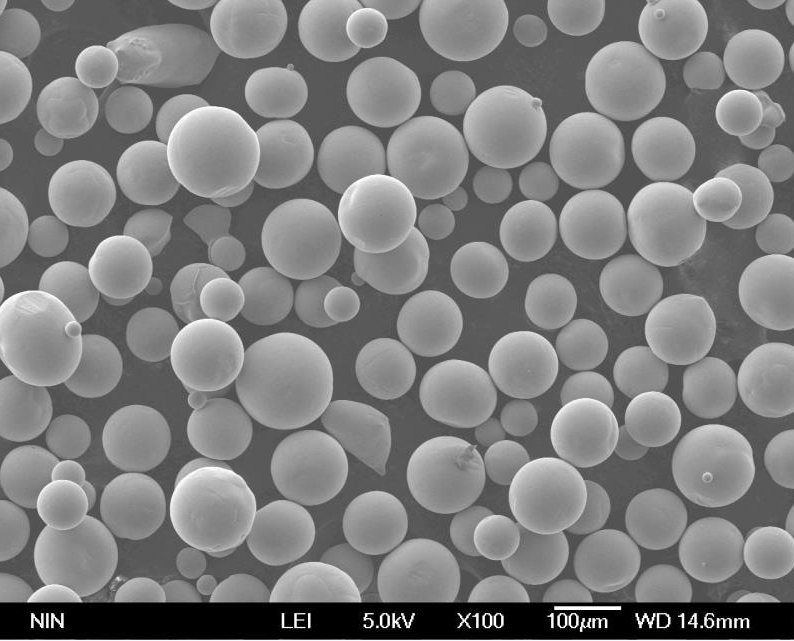
FAQ
Q1 : Quels sont les facteurs à prendre en compte lors du choix d'un matériau de qualité pour le forgeage ?
Lors de la sélection d'un matériau de qualité pour le forgeage, il convient de prendre en compte des facteurs tels que la résistance, la ténacité, la ductilité, la résistance à la corrosion et les exigences spécifiques de l'application. L'environnement dans lequel le matériau sera utilisé et le type de contrainte qu'il subira sont également cruciaux.
Q2 : Comment le forgeage affecte-t-il les propriétés du matériau ?
Le forgeage améliore la structure du grain du matériau, ce qui se traduit par une amélioration des propriétés mécaniques telles que la résistance et la ténacité. Le processus peut également améliorer la résistance du matériau à la fatigue et aux chocs.
Q3 : Quelle est la différence entre l'acier au carbone et l'acier allié dans le forgeage ?
L'acier au carbone contient principalement du fer et du carbone, sans éléments d'alliage supplémentaires. L'acier allié comprend des éléments tels que le chrome, le molybdène et le vanadium, qui améliorent des propriétés spécifiques telles que la trempabilité, la solidité et la résistance à l'usure.
Q4 : Pourquoi l'alliage de titane est-il plus cher que les autres matériaux de forgeage ?
Les alliages de titane sont plus chers en raison du coût élevé du titane brut et du traitement complexe nécessaire à la fabrication de ces alliages. Cependant, leur rapport poids/résistance supérieur et leur résistance à la corrosion les rendent précieux pour les applications de haute performance.
Q5 : Les alliages d'aluminium peuvent-ils être utilisés dans des applications soumises à de fortes contraintes ?
Bien que les alliages d'aluminium comme le 2024 et le 6061 soient solides et légers, ils sont généralement utilisés dans des applications moins exigeantes que les aciers et les alliages de titane. Ils conviennent aux applications aérospatiales et automobiles où la réduction du poids est essentielle.
